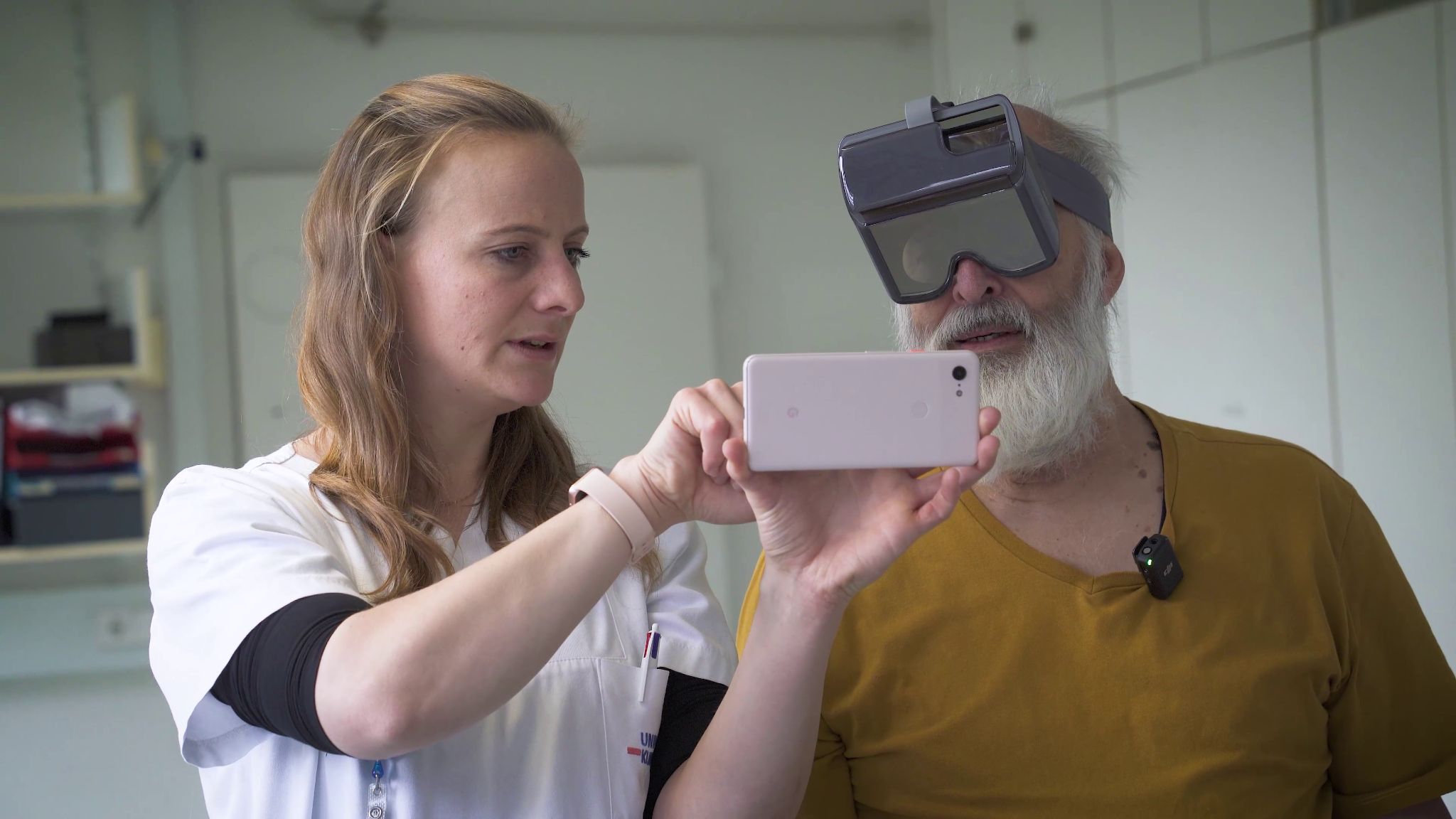Using AI to combat balance disorders
Freiburg University Medical Center is looking for participants for AI-supported training at home after a stroke, with long Covid or mild cognitive impairment

Balance disorders can significantly restrict everyday life and increase the risk of falling - especially in the case of neurological diseases such as stroke, mild cognitive impairment (MCI) or long Covid. Scientists at the Department of Neurology and Neurophysiology at the University Medical Center Freiburg are investigating how telerehabilitation - i.e. targeted training at home under digital guidance - can alleviate these symptoms and improve mobility. The team is using an innovative approach: artificial intelligence adapts the therapy individually, while augmented reality (AR) glasses create an interactive training environment. As part of the EU project "TeleRehaB DSS", the Freiburg researchers are working with four international partner centers to test the effectiveness of this technology-supported therapy in order to offer patients a modern and effective rehabilitation option.
"We have shown in previous studies that a technology-supported form of rehabilitation works well. Now we are looking for patients with balance disorders to clarify whether artificial intelligence can help to adapt the type and difficulty of exercises to the current state of health with the help of movement measurements," says study leader Prof. Dr. Christoph Maurer, senior physician in the Department of Neurology and Neurophysiology at the Freiburg University Medical Center.
AI-supported training with sensors
Telerehabilitation enables therapeutic care independent of visits to the clinic or practice. The training program is based on the HOLOBALANCE rehabilitation platform and combines balance exercises with playful movement training and cognitive tasks. As part of "TeleRehaB DSS", the platform is being expanded to include specific exercises for stroke, MCI and Long Covid. During home training, patients receive feedback on exercise quality and activity through sensors as well as progress information via a smartphone application. Augmented reality glasses (AR glasses) are also used to create an immersive training environment and interactively support targeted exercises.
Who can take part in the study?
The program is aimed at people between the ages of 40 and 80 who:
- Do not live alone and live in Freiburg,
- have Internet access at home,
- have an increased risk of falling, for example due to:
- Stroke (more than three months ago),
- mild cognitive impairment (MCI),
- medically diagnosed Long Covid with symptoms of dizziness.
Further information on the course of the study can be found in the flyer can be found in the flyer. Anyone interested can contact us by email at nez.ag-maurer@uniklinik-freiburg.de or by phone on 0761 270 54797.
A new video on the YouTube channel of the University Medical Center Freiburg gives an insight into the AI-supported training: www.youtube.com/watch?v=ekrK_Dkrf-0
Image: Innovative therapy for more mobility: augmented reality glasses support patients with balance disorders through interactive exercises.
Image source: University Medical Center Freiburg
Back
Medical Center - University of Freiburg
Central Information
Phone: 0761 270-0
info@uniklinik-freiburg.de
For press inquiries:
Corporate Communications
Breisacher Straße 153
79110 Freiburg
Phone: 0761 270-84830
kommunikation@uniklinik-freiburg.de


